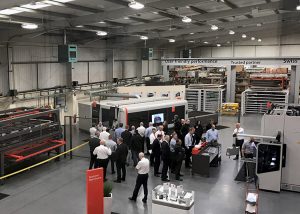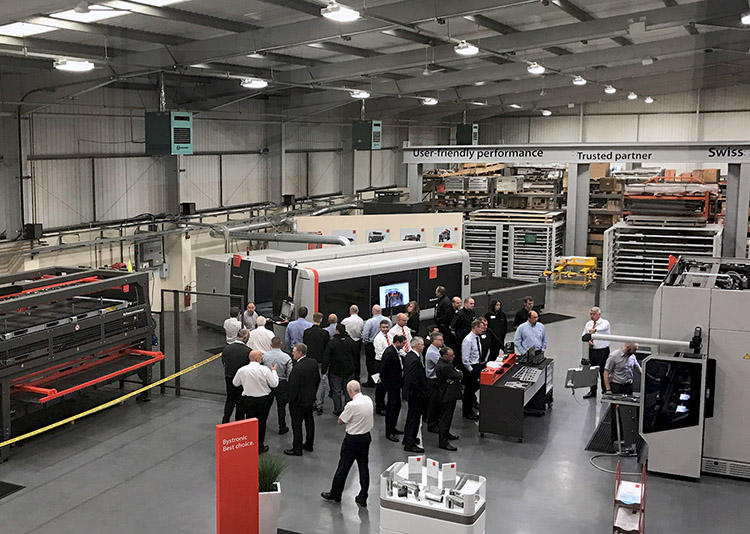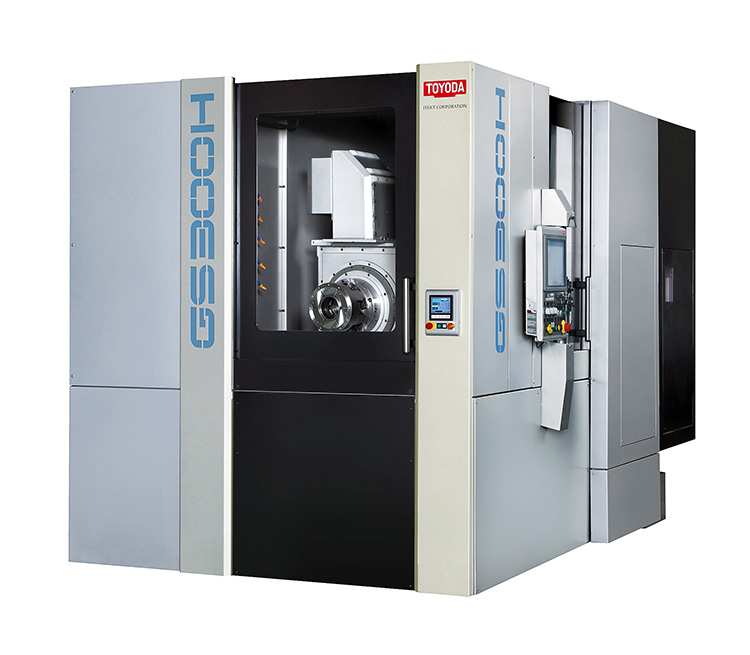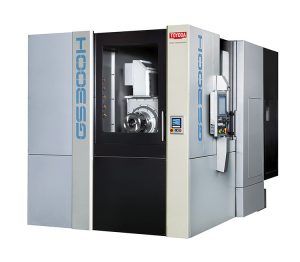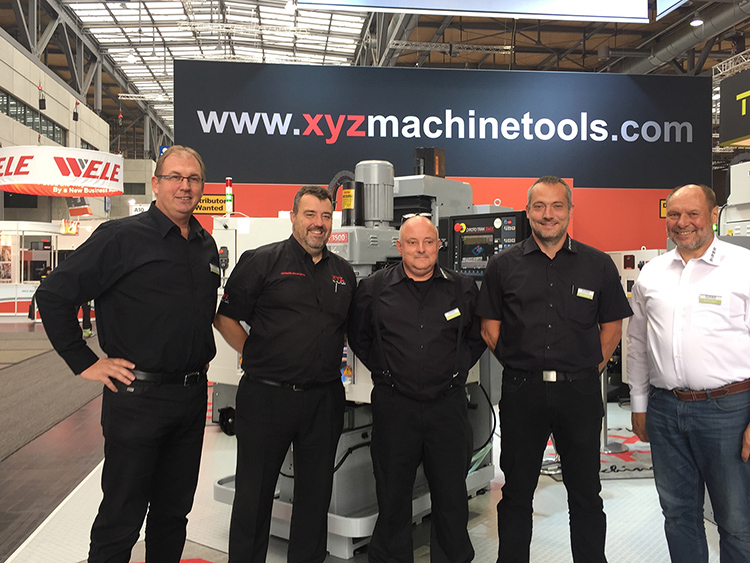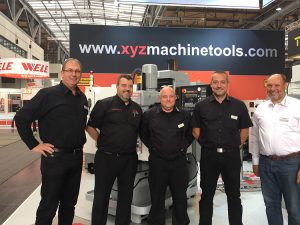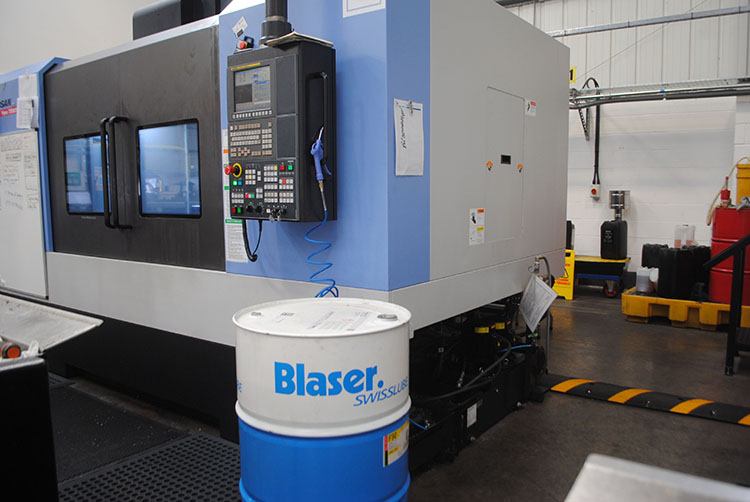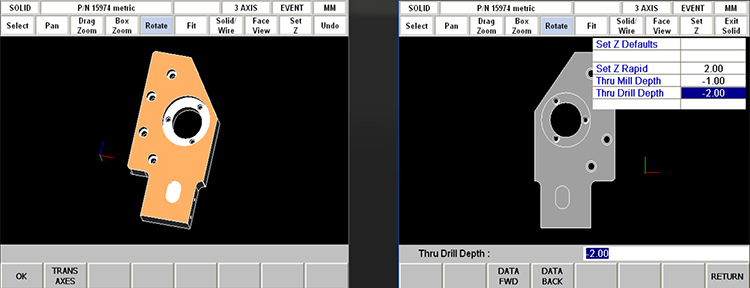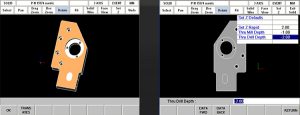Manufacturing companies invest considerable time, effort and resources designing, developing and refining their machining processes. The goal, ultimately, is process optimisation; effectively striking an acceptable and appropriate balance between manufacturing costs, quality and productivity.
But while optimising a machining process is clearly desirable, ensuring that it has longevity, remains reliable and predictable, and continues to deliver the expected results day-in, day-out, is also critically important. To achieve such process security requires vigilance and constant monitoring.
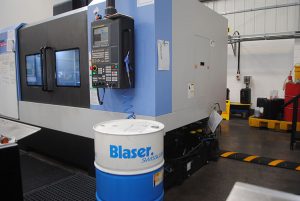
This need for process security can result in manufacturers investing in the latest automated condition monitoring technologies to enable them to intervene (in real time) in their processes, preventing in advance any deviation from pre-set process parameters (or restoring them as soon as possible, if and when any deviation has occurred).
In June 2017, a supplier of titanium stock and semi-finished titanium components to the aerospace sector, took the decision to invest in an Oracle fluid-management system from Jemtech UK. The move was designed to help improve process security and ensure a fail-safe method of delivering ‘right first time, every time’ parts to its customers.
VSMPO Tirus Ltd, the UK-based sales, distribution and service centre of the global giant and vertically integrated VSMPO – Avisma Corp (headquartered in Russia), supplies titanium stock and pre-machined/semi-finished products, in a variety of sizes, forms and quantities, to a diverse and growing range UK customers operating primarily in the aerospace sector.
The company’s operations in Redditch provide warehousing and stock management (over three months of stock is held at any given time) for major customers that include Rolls-Royce, Airbus, Bombardier and GKN.
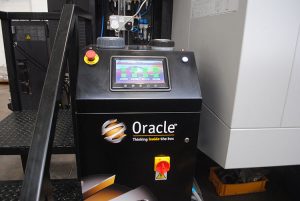
Long-term agreements with numerous customers of VSMPO Tirus ensure security of supply. Many customers also rely on the company’s added-value ‘machining’ services, such as the supply of cut-to-size and part-machined titanium components.
Initially these added-value services mainly concerned sawing, profiling and shearing titanium ingots, bar, plate and sheet, using the company’s suite of bandsaws as well as a large-capacity dual-head waterjet machine and a high-speed shearing machine. However, in recent years the company has invested in three CNC machining centres, which are used for first-machining operations, such as producing fixture points and clamping holes prior to delivery to customers.
“Customers rely on our added-value machining services,” says VSMPO Tirus’ managing director Colin Whitehouse. “By supplying them with high-precision, pre-machined parts, the pressure is taken off their own machining operations. Our services help customers save production time by freeing-up their machines to perform more intricate machining and finishing operations.”
While titanium offers numerous strength and weight advantages compared with other materials, it does pose several manufacturing challenges. As titanium is a poor thermal conductor, heat generated during the cutting process does not dissipate. Instead, the heat intensifies in the cutting zone, sometimes reaching 1100°C, which can quickly dull cutting tools. Using dull cutting edges can generate even more heat, further shortening tool life. What’s more, titanium’s elasticity makes it spring away from the cutting tool, which causes edges to rub together (instead of cut), increasing friction and further raising temperatures in the cutting zone.
Faced with these challenges VSMPO Tirus, having decided to offer CNC part-machined components to customers, invested in ‘best-in-class’ and proven machining technologies.
The investments included rigidly-built three-axis machining centres, high-quality tooling and high-performance metalworking fluids. The company also began developing effective, efficient and repeatable machining processes in order to produce consistently high-quality parts and meet customers’ stringent delivery schedules.
The company currently has three machining centres at its disposal that include two large-capacity, box guideway Doosan Mynx 7500/50 machines for heavy-duty cutting operations.
All three machines use Blaser Swisslube metalworking fluids supplied by Jemtech, with the fluid of choice being Blaser Vasco 7000, a vegetable ester oil-based micro-emulsion designed specifically for the production of ‘difficult-to-machine’ materials.
“High-performance cutting fluids are a critical element in our machining processes,” says production manager Ray Flynn. “Vasco 7000 delivers improved tool life, longer sump life and reduced fluid consumption, which all help us achieve high quality and reduce our overall manufacturing costs. Furthermore, by using the coolant under high pressure, we have been able to increase cutting data [speeds, feeds and depth of cut] to improve cycle times and reduce lead times.”
Never a company to rest on its laurels, having optimised its machining processes, VSMPO Tirus began to investigate methods to help maintain its reliability. As part of this search, the company attended Jemtech’s recent launch of the new automated Oracle fluid management system at the MTC in Coventry, and liked what it heard and saw.
“We ultimately decided to invest in a multi-sump Oracle system and interface it with our two Doosan machining centres,” says Whitehouse. “The system automatically monitors [in real time] the condition of metalworking fluids in the sumps of these two machine tools, and adjusts the fluid’s volume, concentration and pH levels where and when required.”
When a machine tool needs topping up with metalworking fluid, a probe located in the sump sends an alert message to the Oracle unit signalling that more fluid is required. The Oracle system then measures existing fluid concentration levels in the sump and, operating within pre-defined fluid volume and concentration parameters, first calculates and then fills the sump to the required levels.
Simultaneously, the Oracle unit monitors and records existing pH levels by automatically adding correction fluid if required, as well as capturing and recording current fluid conductivity and temperature data, which can be acted on immediately or reviewed at a later date.
“Oracle removes the human dimension from metalworking fluid management,” says Whitehouse. “This delivers an obvious cost saving and, just as importantly, ensures that fluid management actually does occur. We operate tight production schedules and simply cannot afford operational downtime, which is something that can occur if machine tool sump levels are not topped up regularly.
“A particular strength of the Oracle system is that our processes are monitored in real time by Jemtech engineers,” he concludes. “If our processes move out of tolerance we are notified straight away, and if required, Jemtech can undertake remote diagnostics and rectify the issue. Our investment in Oracle has helped us improve process reliability, and that’s good news for us and for our customers.”
For further information www.jemtech.co.uk
